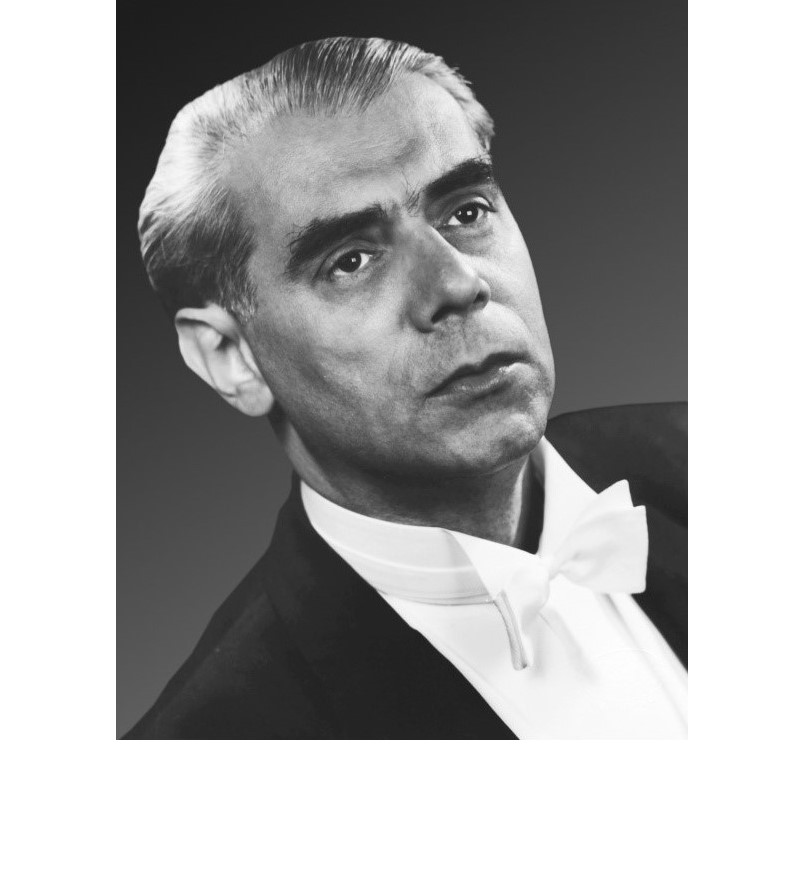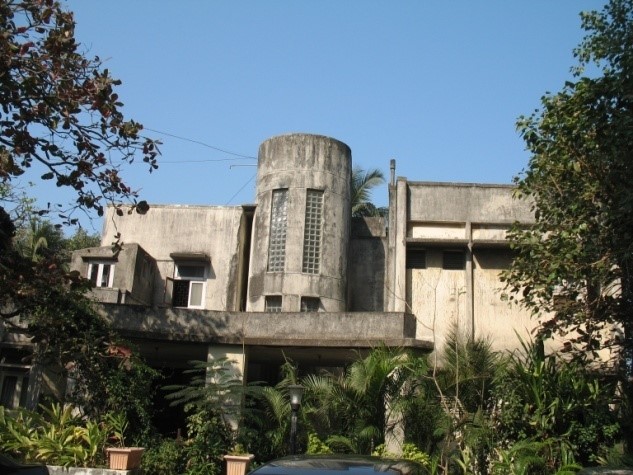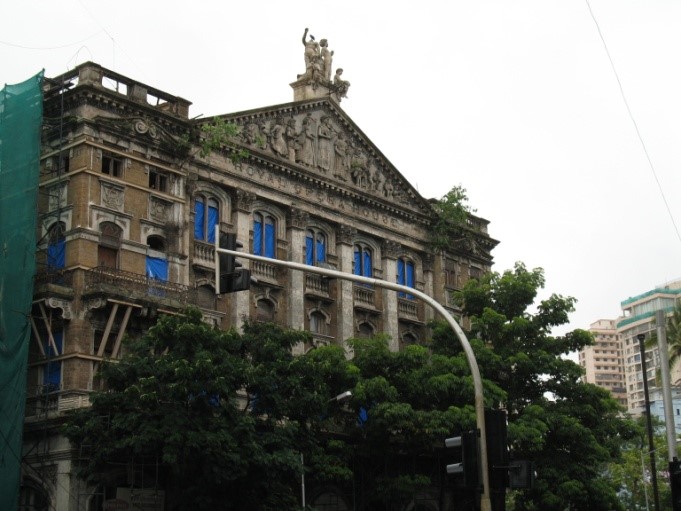Archive
Walter Kaufmann
- Walter
- Kaufmann
- 01-04-1907
- Karlovy Vary (CZ)
- 09-09-1984
- Bloomington (US)
- ComposerConductorMusicologistTeacher
The 12-year exile in Bombay shaped Walter Kaufmann’s life and work; his signature tune for All India Radio is played till today.
Word Count: 23

Cover page of the author’s book The Music that Still Rings at Dawn, Every Dawn: Walter Kaufmann in India, 1934−1946, Goethe Institute Bombay, 2013 (Courtesy of Walter Kaufmann Archives, William & Gayle Cook Music Library, Indiana University, Bloomington). 
Rewa House, Off Warden Road (Bhulabhai Desai Road), Breach Candy, Mumbai (Opposite Cadbury House), where Walter Kaufmann lived in Bombay (Photo: Amrit Gangar, 2013). 
Charni Road East, Opera House, Girgaon, Mumbai (Photo: Amrit Gangar, 2013). Gangar, Amrit. The Music that still Rings at Dawn, Every Dawn: Walter Kaufmann in India, 1934–1946. Goethe Institut / Max Mueller Bhavan, Mumbai, 2013.
Word Count: 21
Walter Kaufmann Archives, William & Gayle Cook Music Library, Indiana University, Bloomington.
Word Count: 12
Bombay, India (1934−1946); London, UK (1946−1947)
Rewa House, Off Warden Road, Breach Candy, Bombay (now Bhulabhai Desai Road, Breach Candy, Mumbai) (residence, 1934−1946); BBC, Broadcasting House, Peel Wing, Portland Pl, London W1A 1AA (workplace, 1946−1947).
- Bombay
- Amrit Gangar. "Walter Kaufmann." METROMOD Archive, 2021, https://archive.metromod.net/viewer.p/69/2951/object/5138-12032183, last modified: 07-09-2021.
-
Willy HaasEditorScript WriterCultural CriticBombay
The former editor of Die Literarische Welt fled to Bombay in 1939. In India Haas worked as scriptwriter for Bhavnani Productions – and had further impact on modern Indian film.
Word Count: 28
Ernst N. SchaefferJournalistPhotojournalistTour GuideEditorRadio ModeratorNewspaper CorrespondentBombayIn exile Ernst Schaeffer diversified his journalistic practice and developed an understanding of Bombay through walking the city streets, taking on street-level-photography and photojournalism.
Word Count: 24
Lesser’s Boarding HouseHotelGerman Jewish boarding houseBombayDuring the 1940’s Max Lesser ran one of the very few German-Jewish boarding houses in Bombay – in the art deco “Soona Mahal” on Marine Drive.
Word Count: 25